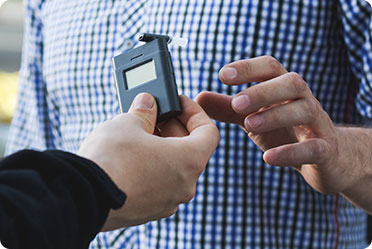
Okay. So, you have been arrested for suspicion of DUI. Then, the police officer asks you to submit a breath, blood or urine sample in order to determine your body’s blood alcohol concentration. What do you do now? Should you refuse?
Each state has its own version of what is called the “Implied Consent Law.” Implied consent laws essentially require all drivers submit to blood, breath, or urine testing if arrested for suspicion of DUI. New Jersey and Pennsylvania laws prohibit the police from forcing a driver to give samples for testing. Therefore, a driver may refuse to comply with a police officer’s request. However, if a driver refuses to provide a sample for testing, then that driver is subject to increased fines and penalties.
New Jersey law only requires that a driver give a breath sample, not blood, upon the request of a police officer. If that driver declines to do so and is convicted of a refusal charge, then the driver’s license will be suspended, fines will be imposed, and the driver is required to attend an alcohol education course. For a first offense, a driver faces a license suspension period of 7-12 months. For a second offense, the suspension is for 2 years. A third offense calls for a 10-years license suspension. These penalties are in addition to the penalties for a DUI conviction.
In Pennsylvania, police can request breath, blood, or urine samples. A refusal conviction will automatically result in a license suspension from 12 to 18 months. Moreover, a refusal could increase potential jail-time for someone convicted of DUI. Unlike the law in New Jersey, drivers accused of refusal in Pennsylvania are not entitled to a trial where the prosecution must prove guilt beyond a reasonable doubt. In Pennsylvania, a driver is only entitled to an administrative hearing where the standards of proof are minimal for the prosecution.
In both states, there is almost no defense to flat-out refusing to give a sample once the driver is made aware of the consequences for refusal. Additionally, the driver’s refusal can be used as evidence of guilt in a DUI trial.
The bottom line is that there are substantial penalties for a refusal conviction. Furthermore, refusal charges are extremely difficult to fight. In the end, you may be hurting more than helping yourself by refusing.
Leckerman Law focuses on safeguarding the
rights of individuals charged with DUI, DWI, DAI, and
other alcohol-related criminal offenses - Call Us Now For
NJ DWI (856) 429-2323 | For PA DUI (215) 496-9292